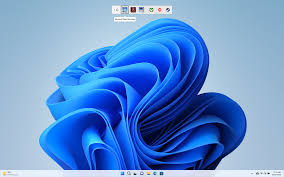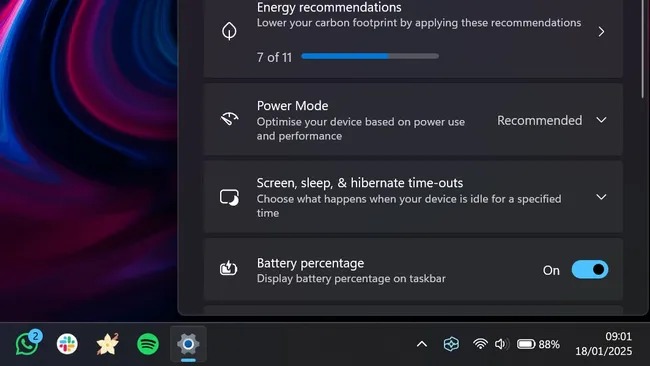Microsoft’s decision to enhance the Taskbar on Windows 11 with a long-awaited feature has drawn widespread attention. As the operating system continues to evolve, user feedback has played a pivotal role in shaping updates and refinements. This recent development underscores Microsoft’s commitment to listening to its user base and delivering practical improvements that enhance day-to-day functionality.

The feature in question introduces a level of customization and efficiency that many users have requested since the release of Windows 11. By addressing these demands, Microsoft not only improves the user experience but also reaffirms its dedication to creating an operating system that adapts to the needs of its diverse audience. Such updates are particularly significant in maintaining the relevance and competitiveness of Windows 11 in a rapidly changing technological landscape.
The journey leading to this update highlights the interplay between user feedback and product development. Microsoft’s development team has frequently emphasized the importance of community input, and this latest feature serves as a testament to that philosophy. By engaging with its users through forums, feedback channels, and insider preview programs, Microsoft has demonstrated how collaborative efforts can result in meaningful advancements.
While the specifics of the feature offer practical benefits, its broader implications cannot be overlooked. Enhancements like these contribute to a more intuitive and streamlined user experience. As operating systems become increasingly central to both personal and professional workflows, ensuring their usability and adaptability becomes paramount. This update not only addresses immediate user concerns but also sets a precedent for future updates, reinforcing the idea that user-centric design is at the heart of modern software development.
For many, the introduction of this feature resolves a longstanding frustration with the Taskbar’s functionality. It represents a shift towards greater flexibility and customization, aligning with the expectations of an increasingly tech-savvy user base. The change also reflects broader trends in the tech industry, where personalization and user empowerment are becoming key differentiators among competing platforms.
To provide some context, the Taskbar has undergone various transformations over the years, evolving alongside Microsoft’s operating systems. Each iteration has brought new features and improvements, yet certain user requests have remained unaddressed—until now. This update marks a significant step forward, bridging the gap between user expectations and software capabilities. It also underscores Microsoft’s ability to adapt and respond to the evolving needs of its users, ensuring that Windows 11 remains a relevant and competitive choice in the operating system market.
The decision to implement this feature also highlights the importance of balancing innovation with practicality. While groundbreaking features often grab headlines, incremental improvements like these are equally crucial in shaping the overall user experience. They address the nuances of daily interactions with the operating system, making it more intuitive and enjoyable to use. Such changes may not always be immediately noticeable, but they contribute significantly to user satisfaction over time.
In evaluating the broader impact of this update, it is essential to consider how it fits into Microsoft’s long-term strategy for Windows 11. The operating system has been positioned as a modern, versatile platform capable of meeting the demands of a wide range of users. Updates like these reinforce that positioning, demonstrating a commitment to ongoing refinement and innovation. They also reflect Microsoft’s understanding of the competitive landscape, where user experience is a critical factor in driving adoption and loyalty.
This update also serves as a reminder of the importance of adaptability in technology. As user needs and expectations continue to evolve, companies like Microsoft must remain agile and responsive. The ability to implement changes based on user feedback not only enhances the product but also fosters a sense of trust and collaboration between the company and its users. It signals that Microsoft values its community and is willing to invest in features that make a tangible difference in their lives.
Looking ahead, this update sets a positive tone for the future of Windows 11. It demonstrates that Microsoft is not only listening to its users but also acting on their feedback in meaningful ways. As the operating system continues to evolve, users can expect further enhancements that prioritize usability, functionality, and personalization. Such updates are crucial in ensuring that Windows 11 remains a leading choice for users worldwide.
The implementation of this feature also raises interesting questions about the role of user feedback in shaping software development. It highlights the dynamic relationship between developers and users, where both parties contribute to the evolution of a product. By fostering this collaborative environment, Microsoft is not only improving Windows 11 but also setting an example for the tech industry as a whole. It underscores the value of listening to users and incorporating their insights into the development process.
Microsoft’s addition of this highly requested feature to the Taskbar on Windows 11 represents a significant milestone in the operating system’s evolution. It addresses long-standing user concerns, enhances the overall experience, and reinforces Microsoft’s commitment to user-centric design. As technology continues to advance, updates like these remind us of the importance of adaptability, collaboration, and a relentless focus on meeting the needs of users. With this update, Microsoft has not only improved Windows 11 but also set the stage for a future where user feedback remains at the heart of software development.










Add Comment